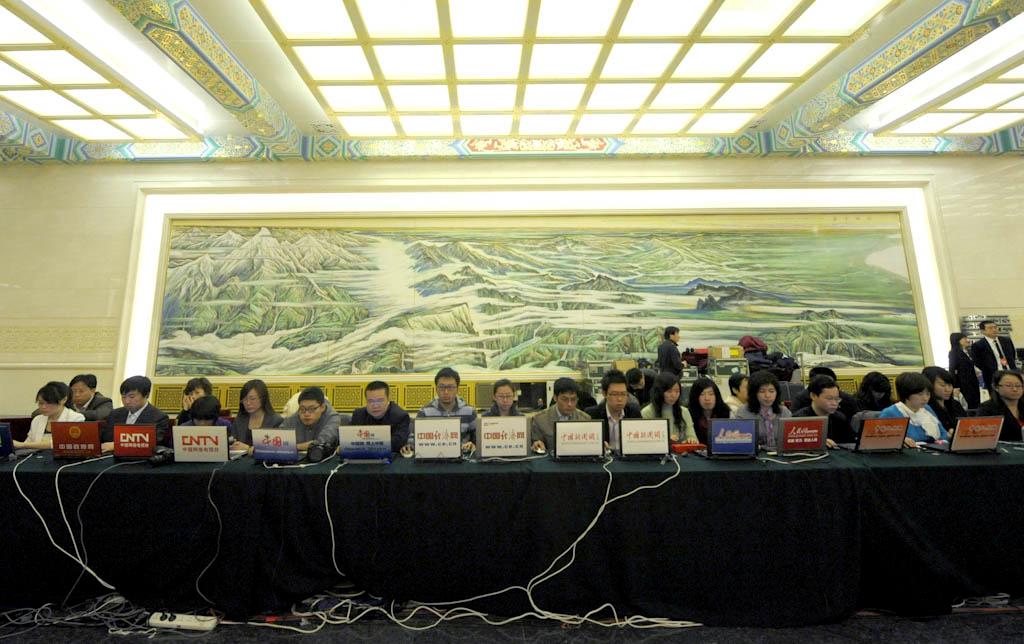China to tighten social media censorship
Journalists from Chinese websites work on computers during a press conference of the Third Session of the 11th National People’s Congress in Beijing on March 4, 2010. China is home to the world’s largest web population, with 384 million people online. The country has more than 81,000 Internet cafes with 4.7 million computers.
The new controls were set out in a communique published in the official People's Daily, reports Reuters.
More from GlobalPost: Chinese political prisoners sue tech giant Cisco
The statement said the government would:
"Strengthen guidance and administration of social internet services and instant communications tools, and regulate the orderly dissemination of information.
"Apply the law to sternly punish the dissemination of harmful information."
There were no details of what form the new regulation will take.
China already has a sophisticated censorship system in place to regulate what internet users can access and publish, but the boom in microblogging – known locally as weibo – has made web content more difficult to control.
More from GlobalPost: Google's China problem
Some 195 million Chinese users were registered on microblog sites at the end of June, more than three times the number at the end of 2010, according to figures from the China Internet Network Information Center.
Tens of millions of messages are sent each day, sometimes using code words or euphemisms to avoid attracting censors' attention to controversial discussions.
Users have recently shown "growing boldness", says the Guardian:
[Microbloggers] have used the services to discuss sensitive topics, highlight scandals and attack official abuses or inefficiency.
Notably, they were highly critical of authorities' response to the Wenzhou bullet train crash in July, and a hit-and-run incident that killed a two-year-old girl earlier this month.
The Chinese government is unlikely to shut down social media sites altogether, according to the Guardian's analysis, since such drastic measures could provoke a backlash. Rather, authorities are likely to step up pressure on site operators to monitor and censor internally.
Separately, the Communist Party has announced it will limit the number of "overly entertaining" reality shows that television channels can broadcast, the BBC reports.
Satellite stations will be permitted to screen only two such shows per week, with the rest of programming being devoted to more news coverage and other shows that promote "traditional and socialist values".
The move comes as part of a drive to "strengthen social morality", agreed upon at a Communist Party meeting last week.
More from GlobalPost: China v. Google: Beijing fights back
We want to hear your feedback so we can keep improving our website, theworld.org. Please fill out this quick survey and let us know your thoughts (your answers will be anonymous). Thanks for your time!
